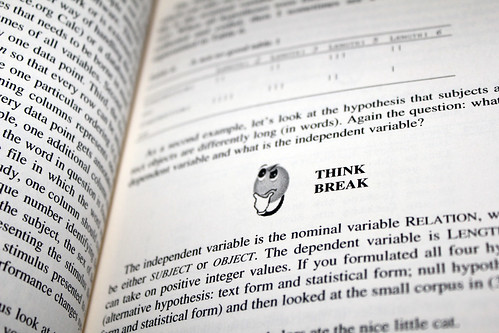I've spent the day with a group of educators invited to Discovery HQ in Silver Springs, Maryland to participate in a forum titled "Beyond the Textbook." As with a number of the events I've attended recently, I've opted to storify the notes, Tweets, and blog posts (and I should add here that these don't just come from the participants at the event but from those that participated in the discussions via the Web. That right there seems to point in the direction of "beyond" I think we need to consider...
"Before" / "Beyond"
But before we go "beyond the textbook," I think it's very important to consider the question of "why textbooks?" in the first place -- how and why did the textbook come into existence? What systems and policies perpetuate its ubiquity? How and why is the textbook used, both by teachers and by students?
I pose these questions not just in terms of the "thing" that we currently call a textbook or a "thing" that could, when digitized, replace it. Rather, I want us to weigh classroom practices, power, authority, politics, publishing, assessment, expertise, attribution, and the culture(s) of the education system. I would argue that the textbook in its current form -- and frankly in almost all of the digital versions we're also starting to see now -- is tightly woven into that very fabric, and once we tug hard enough at the "textbook" thread, things come undone.
That's exhilarating -- the whole "beyond" thing. And for many folks, that's terrifying.
Even if you have the most up-to-date edition of the very latest textbook, I think it's recognize that the textbook -- as an object, as instructional practice -- is still a relic. It is a relic of a time when information was scarce. It's a relic of the way in which we manufactured and scaled the industrial model of education -- a teacher at the front of the classroom, assigning the lessons and readings from an authoritative text. One that was bound by print. One that was distributed state and even nation-wide. One that was uniform. Somewhere along the way, "textbook" became "curriculum" -- and under today's testing regime, that all became wrapped up in "assessment."
The Experts That Write the Textbooks
The textbook as written and published also serves as a reminder that experts are outside the classroom. The teacher is not the expert. The students are certainly not the experts. Copyright means that the words of those experts is unalterable, uneditable, unsharable. Fixed. Protected.
The textbook, while posited as a scholarly resource, also comes with a political authority, shaped by market forces that have determined it's best to build a book once and build it for the biggest districts. That has long meant building for Texas. What will you learn in your public school textbooks about Helen Keller's socialism, for example? What will you learn about global warming? About evolution?
Does "Digital" Make Any Difference?
I've written several times in the past about my distaste for textbooks. I'm willing to admit that a lot of that is disciplinary bias. I taught literature and composition. I didn't use textbooks.
But as a literature and writing teacher -- and as someone who remembers distinctly being assigned in grad school dear old Stanley Fish's "Is There a Text in This Class?" -- I have spent a long time thinking about genre, writing, readers, publishing, canons, interpretation, authority, and meaning.
I also see textbooks stitched together from multiple (primary and secondary) sources, with multiple authors, with various add-ons and bonus features (quizzes, vocabulary and the like) and I see a form just waiting to be shredded and remixed thanks to the move from print to digital.
Making is Learning
So why don't we just build textbooks ourselves?
For those that retort "teachers don't have time to write textbooks": yes. True. But thanks to openly licensed content -- whether it's flagged as textbooks like CK12 or Flat World Knowledge or whether it's other texts we can now more easily access online -- we needn't write textbooks from scratch. We can remix. We can edit. We can extend. We can share.
And here too lies a wonderful opportunities for learners -- not just teachers or publishers -- to build their own "textbooks" (although at this point, I wonder if we can just ditch that whole term), to construct and reflect on their own knowledge production (not reproduction).
Once the textbook publisher controlled expertise, with the teacher as its agent in the classroom. Clearly that no longer need be the case. Expertise has been distributed, thank you Internet. Experts are everywhere. Knowledge is networked, as are learners.
Moving "beyond the textbook" recognizes those networks and fosters those capacities.
Disclosure: Discovery Education paid for my travel and accommodations to Silver Springs
Photo credits: Quinn Dombrowski
